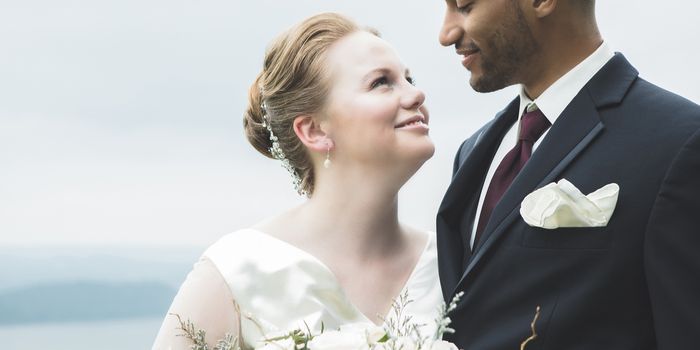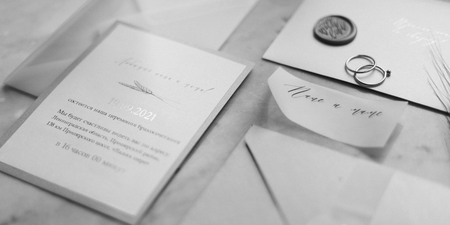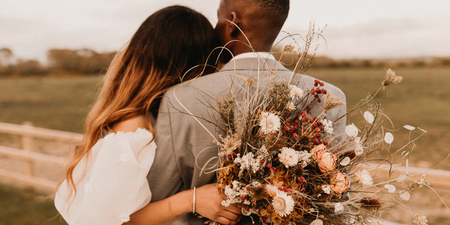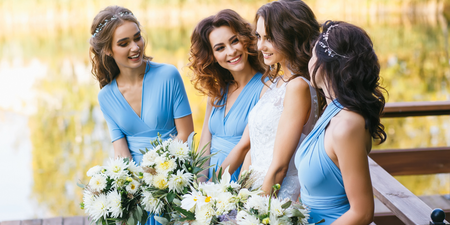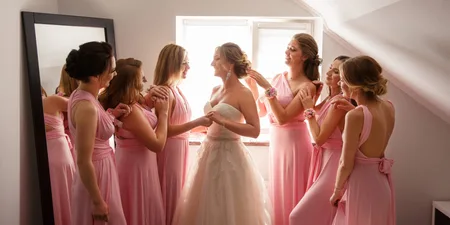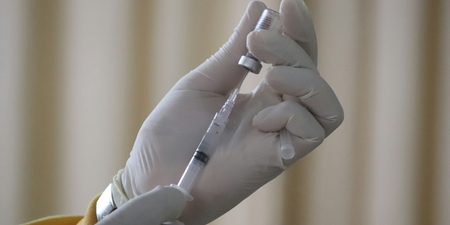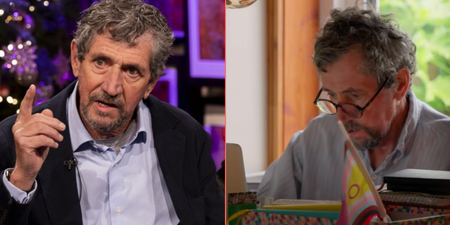The ways we get married are changing.
Like the majority of industries in Ireland, the wedding industry has been hit hard to Covid-19.
Ceremonies have been pushed forward, receptions have been cancelled, brides and grooms have been left wondering when they’ll get to host the most important party of their lives.
And although the party is what we tend to look forward to most, at the end of the day, a marriage is about one thing: two people saying “I do.”
The rest can often wait, and that’s why some couples have opted for micro-weddings during the coronavirus pandemic – events that contain the minimum amount of people and require significantly less planning than your typical large scale affair.
After all, you can always have the big party afterwards.
So, what exactly is a micro-wedding?
A micro-wedding is a wedding typically consisting of less than 20 people – bride and groom included.
A wedding of 50 people or less could also be described as micro, depending on who you asked, but as more couples opt for less traditional means of wedding ceremonies, this number is becoming less outlandish as the years go on.

Pre-Covid, most micro-weddings tended to take place because the bride and groom wanted to save money, because they wanted to get married as soon as possible, or because they simply had no interest in hosting a big party.
Micro-weddings often focus on guest experience, ensuring that every single person in attendance has a glorious day that can often appear tailored to their own interests.
For this reason, micro-weddings can require an awful lot of planning as the bride and groom ensure that their day is just as thought out as a regular large-scale wedding would be.
But here in the era of Covid-19, things are changing…
And that means that for some people, having a micro-wedding isn’t just a choice anymore. It’s a necessity.
Elegant Events wedding planner Collette O’Leary recently planned a micro-wedding for a client – something that in her 12 years of planning large scale weddings, she never thought she would hear herself say.
“Some people have to get married for particular reasons,” she tells Her. “Sometimes it’s because a relative is elderly, other times it might be because a couple decides to elope.
“We’re doing a micro-wedding at the moment where the mother is quite elderly. So it’ll be the celebrant, the bride, the groom, and their witnesses. And then later on, they can have their big huge party.”

But Collette’s clients aren’t the only ones who have been opting for a small socially distant ceremony amid the outbreak.
Earlier this year, bride Siobhán Daly told us that she and husband Jack decided to reduce their planned large scale wedding to under 20 people.
The couple married in Kilkenny back in March, just as the Covid-19 outbreak began. Lucky to still have access to the grounds of Kilkenny Castle, a photographer, and her close family, Siobhán married in a beautiful Zara dress and a headpiece she had made herself.
They simply weren’t “prepared to wait,” she said.
To love – and to wait…
For those who can wait though, wedding planner Collette is adamant that they do.
Once the Covid-19 outbreak began, she decided to move all of her clients into 2021 – not just because it’s a more realistic timeframe for when things will potentially be “back to normal,” but to avoid a lot of the anxieties around such uncertainty.
“One wedding move is enough for any bride and groom,” she says.
“I know couples who have moved from April to June to October, and will probably have to move again. It’s incredibly stressful, but a lot of people are still hanging in there and hoping.
“We still don’t even know if we’ll be able to have gatherings of 250 in January 2021. You can’t social distance with alcohol, which means that you can’t social distance at an Irish wedding.
“People who can’t wait, will go ahead and have micro-weddings, but I’d imagine everybody else will wait. I’m hoping that most people will wait.”
